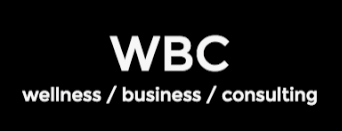Many people don't have the clarity of knowing what they want to do after college, and so many just wing it. Today, more Americans have college degrees than ever before, with one-third holding a four-year degree, according to the U.S. Census Bureau. Yet, the majority of college graduates do not find employment in their field.
We frequently discuss and sometimes place blame on job market trends for how we fit into our changing world of work. But what is less often considered are the changes and fluctuations within ourselves that can drastically alter the course of our careers. Often this comes after a period of feeling stuck, overwhelmed or burned out.
Instead of rushing into a career, take the time to let it find you through self-exploration, travel and diverse immersive experiences. I know firsthand that life experiences can be the stepping stones that lead you to a career you are truly passionate about.
I earned a photography degree in 2005 and spent years in working every part-time photography job imaginable. To make ends meet, I also worked as a nanny, dog walker, server and bartender, as well as in retail shops and office jobs — all while hustling to get my own photography gigs. I was exhausted and work was inconsistent.
On a chilly day in March 2005, I helped an elderly man find his route on the subway. This simple act of kindness caught the attention of a tall, cute man in his twenties, who was heading in the same direction on the L train. I later learned his name was Danny. As I entered the train, I noticed Danny looking at me as I put my headphones in, smiling to myself. I took the opportunity during the ride to steal glimpses at him. I thought for a moment about speaking to him but reluctantly got off the train at my stop. He gave me a longing look, like he wanted to say something too.
As I walked home to my apartment in the East Village, I immediately regretted my decision to not be bolder and speak to him. Feeling frustrated, I decided to write a Missed Connections post on Craigslist. It was a long shot, but as a hopeless romantic, I felt I may as well give it a try. When he wrote back the same day, I was excited, nervous and overjoyed. After some back and forth emails, we quickly realized we were both the same age and has a lot in common. We spoke on the phone for a couple of hours and decided to meet at Yaffa Cafe on St. Marks. We stayed up late, locked in the kind of deep conversation rarely had with a stranger, talking about our lives, work, friends and families, and I felt immediately connected to him.
While my romantic relationship blossomed, professionally I felt extremely lost and depressed. The inconsistent work was exhausting and gave me anxiety. When Danny asked me to join him on a trip to India and Southeast Asia, I added shifts as a cocktail waitress to save for the trip, storing my pay in the remnants of old film development canisters that lined my book shelves.
Our trip was one adventure after the next, though physically quite taxing. After carrying a heavy backpack and sleeping in cheap hostels for months, I jumped at the chance to take a Thai massage class in Thailand. I had no idea I would fall in love with the flow and movement myself.
When we came home from our trip, I enrolled full-time at The Swedish Institute of Massage Therapy. My business and career that followed would not exist today if not for that Missed Connection post. While Danny and I ended up moving in different directions with our lives, meeting him carved the path to discovering a career I fell in love with instead.
That trip changed my life and opened me up to so many possibilities that were previously unimaginable. It took getting out of my comfort zone, taking a risk and admitting what was working and what wasn't working for me in my career. I discovered similarities between photography and massage, oddly enough. Certain qualities easily translated from one profession to the other. I love working with my hands, with people and not having a standard 9-to-5 desk job. The transition felt seamless, like it was meant to be.
Most successful entrepreneurs and individuals I've spoken to over the years didn't make a career change because they were excited or happy. It came from a place of frustration, annoyance, not feeling satisfied and wanting something to change. While listening to your inner voice to find your career, it's important to be open to new ideas and directions and have a willingness to take chances regardless of where you are. Let your career find you by staying open to opportunities as they arise. Your career path will likely change as you do.
Article Written by Rachel Beider as seen on Forbes.com









